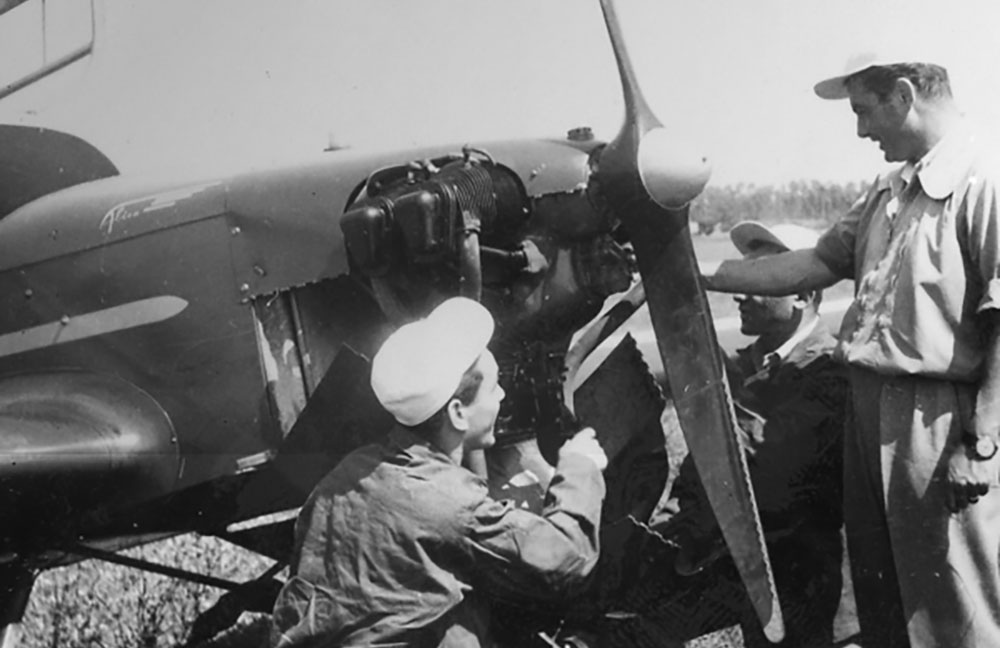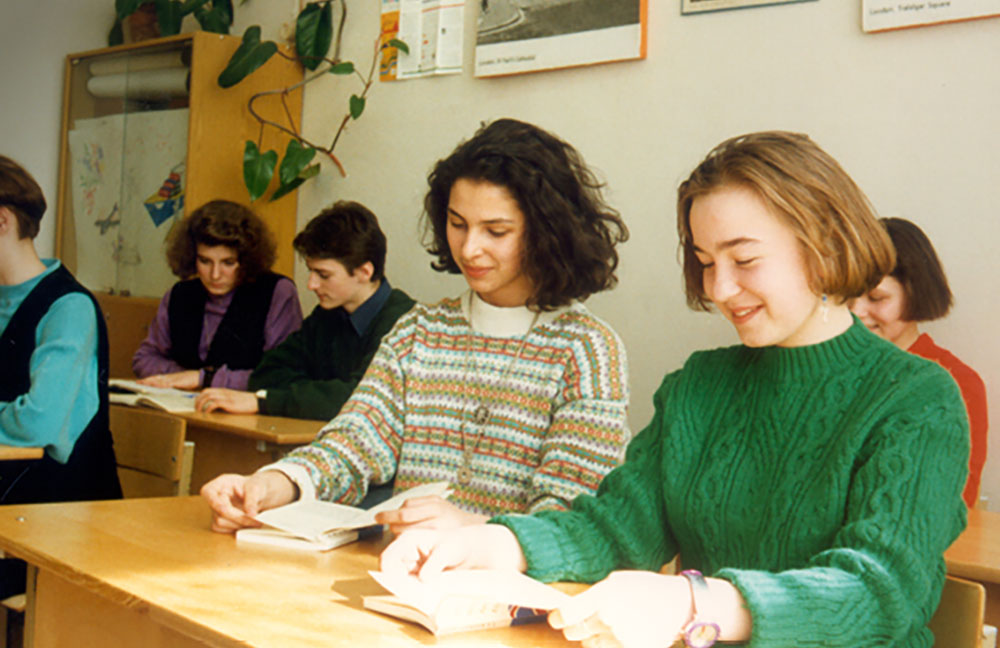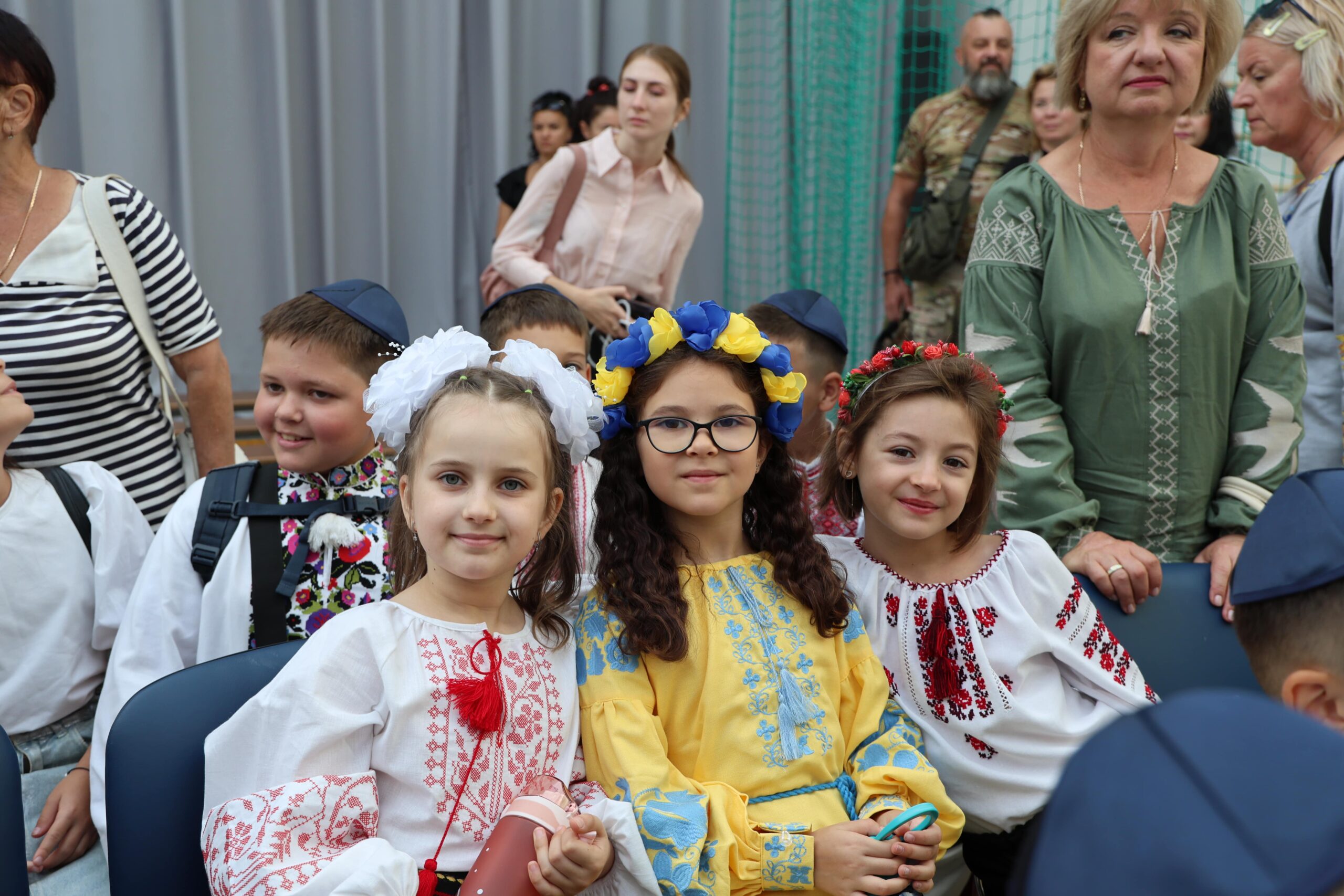

Delegates during the first ORT Congress, where World ORT Union was founded, Berlin, Germany, August 1921
ORT in the 19th Century: Strong Foundations
ORT was founded in St. Petersburg, Tsarist Russia, in 1880 to provide employable skills for Russia’s impoverished Jews.
Our founders were Nikolai Bakst, Baron Horace Gunzburg, and Samuel Poliakov. They, along with several influential members of the St. Petersburg Jewish community, gained permission to form ORT, a “charitable fund for a useful purpose”, in honor of the Tsar’s 25th anniversary. The name “ORT” was coined from the acronym of the Russian words “Obshestvo Remeslennogo i zemledelcheskogo Truda”, meaning “The Society for Trades and Agricultural Labour”.
ORT distributed funds to Jewish schools for handicraft and agricultural training, and provided grants or loans to artisans and farmers. In the early 1900s, the organization began to sponsor cooperative ventures, to support training programs in Jewish schools, and to establish its own vocational schools.

Students working in a workshop with instructor Max Abraham, ORT Berlin, November 1938 [Photographer credit: Lilli Szkolny]
1920s and 1930s: ORT continues to grow
During and after the First World War, ORT’s workshops, credit, and labor offices saved thousands from starvation and unemployment. In 1921, the ORT Union (today’s World ORT) was created to coordinate fundraising efforts and to oversee ORT’s growing activities in Europe and elsewhere.
Throughout the interwar years, ORT supported Jewish farmers with equipment, loans, and training, while graduates of our technical schools gained employment as technicians and engineers. In the 1930s, ORT courses helped Jewish refugees fleeing the rise of Nazism to prepare for life in other countries.
In the Soviet Union, ORT worked with the authorities to establish industries and supply materials and machinery but was forced to shut down its operations in 1938.

Taking to the skies in Italy – Engineers at the ORT School for Pilots, Italy, 1948
1940s: ORT becomes a ‘Passport to Life’
The movement of Jewish refugees led to the development of new ORT programs beyond Europe, mainly in South America. In Europe, during the Holocaust, ORT became a “Passport to Life” as our trainees in ghettos received extra food rations and were selected for labor details. In many cases, this meant the difference between life and death.
After the war, ORT trained tens of thousands of survivors and displaced persons from Jewish communities throughout Europe. ORT graduates contributed to the building of the early Jewish community of Palestine and, after the founding of the State of Israel, ORT became a key feature in the country’s education system.
ORT also turned its attention to the needs of “forgotten” Jewish communities in Morocco, Algeria, Tunisia, and Iran.

An ORT Morocco student lighting the candles, Casablanca, Morocco, 1970s
1960s and 1970s: Branching out
In 1960, the US Agency for International Development (USAID) asked ORT to undertake technical training programs in Africa. Seeing this as an integral part of our mission, we began a new phase of humanitarian activities outside the international Jewish community while also expanding our work with Jewish communities in France, Latin America, North Africa, the Middle East, and India.
In Ethiopia, ORT received permission to operate in the Gondar province in 1977. We brought crafts, vocational skills, modern agricultural methods, medical help, and general and Jewish education to these remote areas.

In the 1990s ORT returned to Russia, the country of its birth, followed by other countries in the former Soviet Union (FSU) and Eastern Europe
1991, Back to Russia after an absence of 53 years
In the 1990s, we returned to Russia, the country of the organization’s birth, followed by other countries in the former Soviet Union (FSU) and Eastern Europe.
In addition to our existing Jewish day schools in Latin America and elsewhere, we established day schools in the major Jewish communities in the FSU as well as vocational training centers for women in rural FSU communities.
In 2007, we founded the World ORT Kadima Mada educational network in Israel.

With support from across the ORT network, students in Ukraine were able to continue their education despite the challenges of war
2020s
The decade opened with the Covid pandemic, affecting students and teachers worldwide. Distance learning becomes the norm.
The war in Ukraine, which began in February 2022, caused significant upheaval, trauma and displacement. Hundreds of dedicated ORT Ukraine teachers continued to provide educational services for more than 3,800 students despite the most challenging circumstances. Many students and their families moved abroad, but continued their ORT education online.
With the assistance of World ORT and our global fundraising partners, ORT Ukraine provided essential aid, including emergency financial assistance, psychological support, emergency response training, food, equipment, and supplies.
In Israel, the terror attacks of October 7, 2023, meant many World ORT Kadima Mada students, teachers and staff were displaced from their homes in the north and south. WOKM provided mentoring and activities in evacuation centers, as well as online learning, followed by significant emotional and trauma support for thousands.
In 2025 ORT celebrates its 145th birthday as an international network of schools, colleges, vocational training programs, and other activities benefitting more than 350,000 people — young and old, Jewish and non-Jewish — in more than 40 countries.